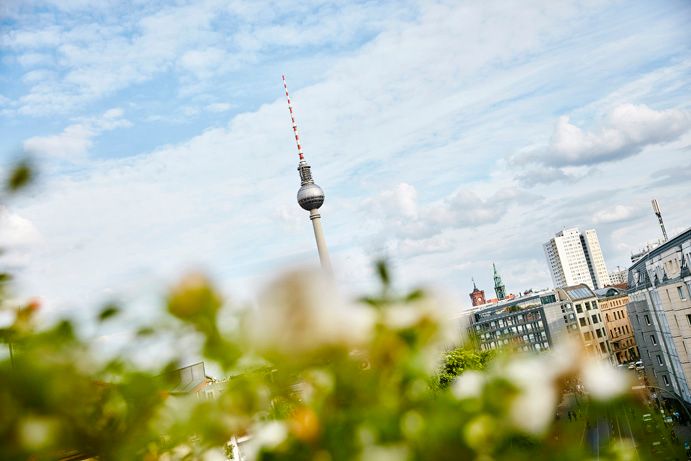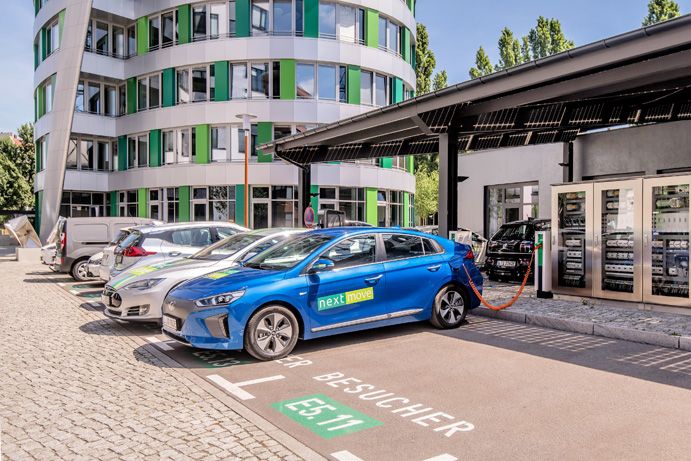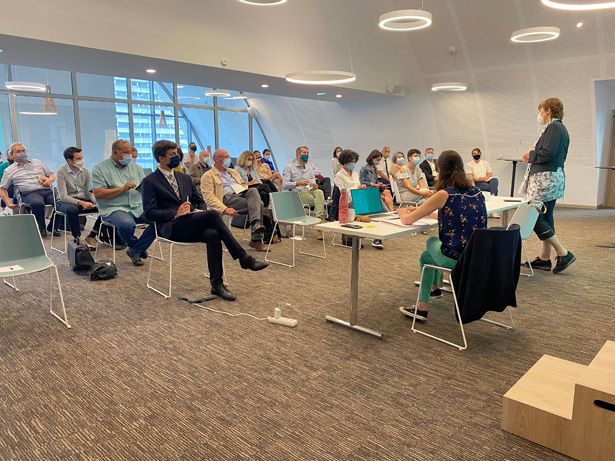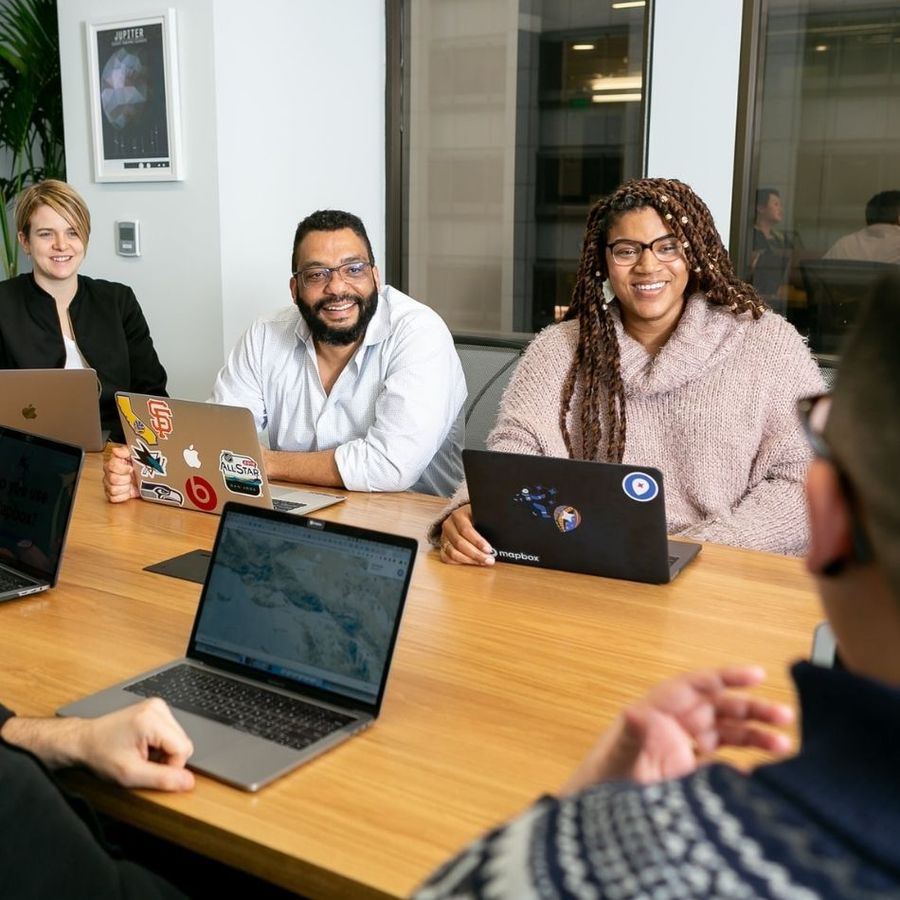As the slow recovery from COVID-19 begins, the GDS-Movement looked to celebrate the achievements of the destinations that continued with their sustainability efforts in 2020 despite the severe challenges the travel, tourism and events sector has been facing.
The GDS-Index, the world’s largest performance improvement programme for sustainability in destinations, has a set of 71 criteria in its 2021 iteration but in 2020, 69 criteria were used to measure a destination or DMOs performance across the criteria.
The average 2020 score showed that performance increased across all categories by 14% versus those average scores in 2016 – but declines by 6% when compared to scores in 2019. The change was mainly due to the supplier category because many of them were closed and contact couldn’t be made by the DMOs with them. However, DMO performance remained relatively stable in 2019 and 2020. Bigger changes were seen in the supplier management category largely because 70% of the overall destinations within the GDS Movement benchmarked. Thirty percent chose not to benchmark in 2020 and rather focus on the immediate crises their destination was facing because of COVID. Of that thirty percent, 10% were past GDS-Index top scorers so this is likely to have impacted the overall average.
What is important to remember is that the GDS-Index new member destinations in 2020 traditionally have lower scores as they are just starting the journey towards full circle sustainability. The impact of the pandemic cannot be excluded from the overall context the sector found itself in.
The revised criteria launched by the GDS-Index for 2021 asks deeper questions about the quality of the outputs rather than giving weighting to the quantity of them. This focuses the destination’s tourism and events strategy on impact and results that can be visibly achieved in shorter periods of time.
A key challenge to overcome will be managing the outputs of suppliers and how to factor in changes in resource allocation and availability. Human resources are also proving challenging and job cuts lead to reduced human support for transformation to be initiated.
Even though we have all been hit by a huge economic and health tsunami, there are other waves of change ahead that pose tremendous threats to social and economic stability like the impacts of climate change, the forced economic recession and biodiversity loss which is considered to be a main cause of the rise in virus outbreaks.
The GDS-Index measures the trends in strategy development, policy and reporting of all its participating DMOs and found that 77% of DMOs do have a strategy in place – and that there has been a steady improvement in the quality of these strategies.

IMAGE: The Berlin Forum / VisitBerlin / Mike Auerbach
Social KPIs increased by 42% in DMOs versus only 29% of the previous index. Looking at reporting, there are still many DMOs that are struggling to identify and implement systems that measure the social and environmental impacts of tourism and events. Even though more than half of the DMOs measure and report their sustainability progress, only 51% have implemented environmental KPIs and 53% social KPIs.
The GDS-Index believes that although measuring and reporting on sustainability is still relatively poor, DMOs in the post-COVID world are changing focus and we will see more improvement. In 2020, 65% of the DMOs were offering their supply chain partners skills development and training, and we see a growing opportunity to help destination stakeholders measure and manage impact.
Due to the tourism industry having been so very hard hit by the pandemic, supplier scores exhibited a marked drop which is likely to continue into 2021 due to budget cuts and a loss of human resources in the industry.
Top Tips for the Right Strategy
Having worked with dozens of destinations to co-create their sustainability strategies and plans for regeneration, the GDS-Index recommends the following for effective DMO management planning:
– Engage all stakeholders to provide input into the vision and goals for the destination’s tourism industry
– Co-create the strategy with this input and with a diverse stakeholder taskforce
– Ensure the strategy has SMART goals and KPIs for the environmental, social and economic impact that is desired
– Include plans for reporting and developing dashboards in your communication strategies, and maintain a transparent approach in capacity building for suppliers and for teams. Train your team on your sustainability strategy and how to implement effective communication campaigns that reflect the role and purpose of the sustainability goals
– Define a multi-level certification strategy for the destination, that allows organisations to engage with a reduced set of programmes at different performance levels (i.e. a simpler programme for beginners, and a more demanding program for advanced practitioners)
– Offer capacity building to clients and event organisers to improve their sustainability knowledge and performance and create best practice examples for the destination

IMAGE: EUREF AG / Christian Kruppa
Best Practice – Examples:
1. Sustainable Meetings Berlin – For events that make a difference
The vision behind this engagement is a wish to transform Berlin into one of the most sustainable events destinations in the world. Berlin has a lively mix of NGOs, startup companies and is innovative in its governance and structure. This attracts other businesses and suppliers who share similar values and has inspired them and event planners to understand and implement more sustainable business practices. The Tourism Plan 2018+ focused on sustainability and city compatibility, and was developed by the Senate Department for Economics, Energy and Public Enterprises.
Sustainable Meetings Berlin has three main pillars:
1. Create a community of service providers and partners – key to the initiative as they need to transform, educate, learn, and discuss issues all within a safe and trusting space. Every eight weeks there is a sustainable MICE sector meeting where experts gather to discuss concepts like hydrogen power and its relevance to the events sector. They also hold workshops and offer training to prepare for audits.
2. Audit their own system – they looked into global certification criteria and decided to define their own, focusing on concepts and specific sets of criteria for hotels, venues, catering services, and other suppliers of the tourism value chain, to ensure that the set of criteria will meet their business model. They also seek to drive continuous improvement processes. A lot of research went into the creation of their criteria and a lot of time into engaging their stakeholders through workshops organisers with their sustainability consultants. In 2021 the state of Berlin will cover the costs for the audits, preparation workshops and online learning for new partners.
3. The online platform is very important to enabler visibility for the people who are getting certified. The website also serves as a tool for event planners. A guide book “Sustainable Event Guidelines” and a tool box for sustainable ideas for planning has been created and includes listings of the participating suppliers. In addition, the Berlin Congress Fund places a particular emphasis on promoting sustainable event and business management. Events which meet particular sustainability criteria in a comprehensive Sustainable Event Scorecard are eligible for funding of up to 60 euros for each in-person attendee.
The online platform aims to support the continuous improvement of partners and showcases their profiles. You can view this information and find their results divided by the four areas of sustainability. These results are audited each year to support measurement and improved goal setting for future progress.
https://convention.visitberlin.de/sustain

IMAGE: Bordeaux Tourism & Conventions
2. Bordeaux Office of Tourism and Congresses – Open Governance for Tourism in Bordeaux
This model of open governance was created after research showed that only eight percent of Bordeaux’s residents surveyed believed the city considered the impact of tourism on their lives. Even though this same research showed that more than half of the residents believed tourism had positive rather than negative impacts, they wanted to focus on those who didn’t feel included and how residents can be more involved in tourism development. As Bordeaux is now only two hours away from Paris by train, it is not the influx of new residents that has caused problems with accessing the property market, but rather the result of tourism.
Because the city is quite small, residents were having problems getting access to housing. The result of this conflict was a change in the city’s strategy that led to the creation of open governance for tourism; a multi-stakeholder initiative that involves every person whose life is impacted by tourism and who want to have a positive social and environmental impact. The open governance system generates a sense of belonging and commitment to shared values, and works with inter-professional working groups who use design thinking methods and collective intelligence to solve problems.
Mobility is a key issue for Bordeaux and this working group has been tackling this issue and deciding on a budget to do so. The outcomes are shared publicly to achieve full transparency of the working groups, and to allow all to feel that the outcomes of the working groups are aligned with their strategies.
The collaborative approach is creating a different future for tourism. Developments will continue and they plan to have an online platform for open discussions considering they already have two residents per city who are involved in the groups. The online platform will offer further support, showcase data and maintain the principle of transparency so people can see the work in progress.
Two years ago, Bordeaux wouldn’t have built such a governance framework, but thanks to the influence of international standards and the GDS-Index they have been guided on strategy, policy, governance and measurement. The GDS-Index score was low two years ago but this motivated Bordeaux to a series of continual improvement actions including further collaboration with the GDS-Index on strategy development and impact measurement. The revised strategy speaks to the SDG# 9 Innovation and Infrastructure and SDG#11 Sustainable Cities and Communities. The ISO 20121 certificate for Sustainable Event Management is also on the horizon.
3. Gothenburg’s 101 Sustainable Ideas – Inspiration for better tourism
There is strength in learning from others and this is what inspired Göteborg & Co and Group NAO to embark on an innovative journey to explore some of the most inspirational ideas for better tourism in cities around the world.
This resulted in the development of “101 Sustainable Ideas for Better Tourism”. This online platform allows organisations to nominate and share powerful ideas that contribute towards the UN’s Sustainable Development Goals. Moreover, the platform reflects the creative thinking of social entrepreneurs, innovative business founders, visionary tech and imaginary doers who are driven by a strong sense of making a difference.
There is a host of great ideas to be found across all categories including community experience, food, tech, hotels and events, attractions, transport and travel planning. Some of these great ideas include managing food waste in restaurants and using museum exhibitions to educate people about sustainability goals. You can even hire your own eco boat and be a captain for a day while learning about renewable energy. Promoting the cultural connectivity, there is an app that links diners with local cooks in their own homes.
Conclusion
Innovative, inclusive and sustainable strategies inspired by collaborative consulting and multi-stakeholder engagement are highly effective tools for development that can call itself regenerative, having learned its sustainability lessons. The destinations embracing new models of thinking and working together are discovering solutions and building new relationships as they strive to co-create a future-fit industry that has inclusive benefits for society and promotes innovation within a networked environment.
Watch the webinar



